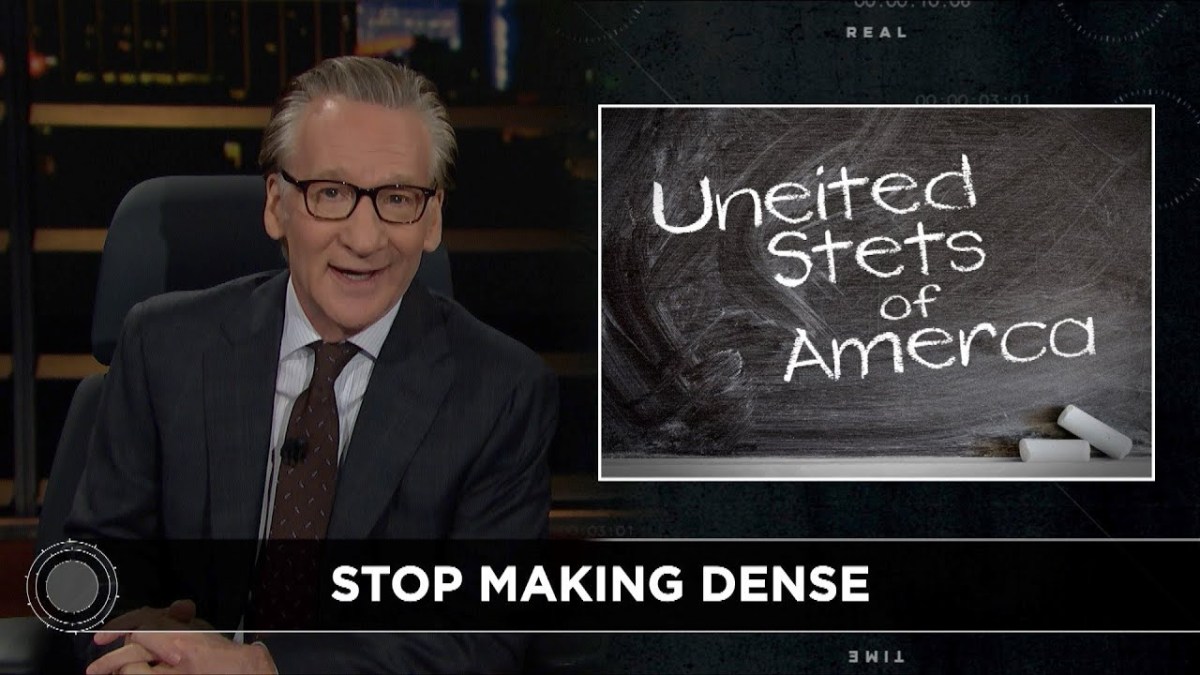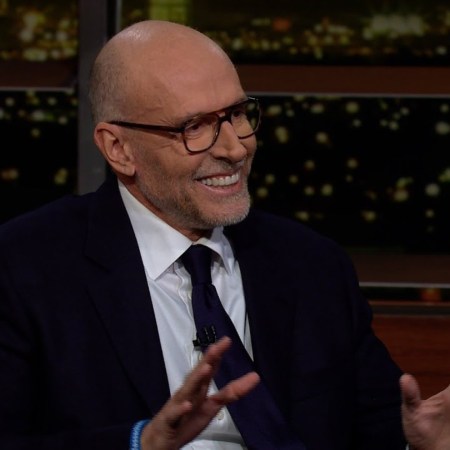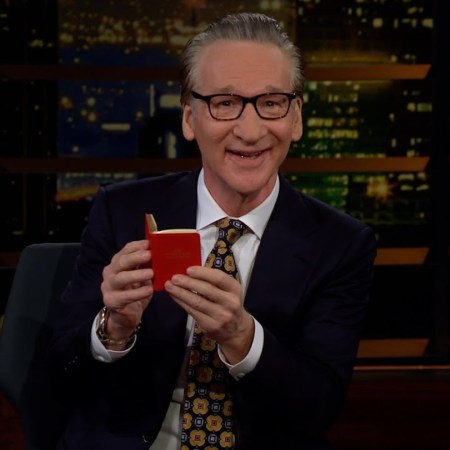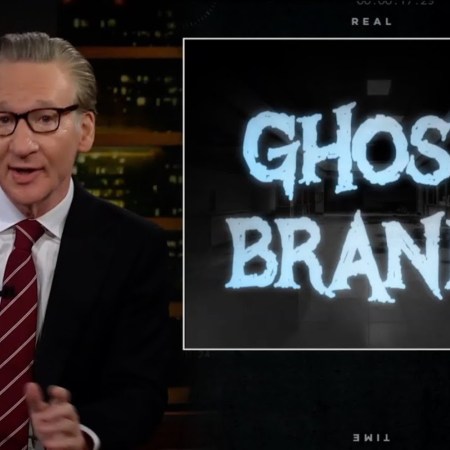After a week off, Real Time With Bill Maher returned with an episode that sought to cover a lot of ground. Maher’s opening monologue was a perfect illustration of that, pivoting from Heard/Depp trial verdict to jokes about cryptocurrency. While the audience seemed enthusiastic about the summer; Maher reminded them of the presence of drought and water shortages. There were also the requisite digs at the youth of today, with Maher suggesting that jobs bill themselves as “diabetes influencer” in lieu of “fast food worker.”
The shooting in Uvalde, Texas — and its aftermath — brought Maher to a more critical place. “Texas police – they are very pro-life. Particularly their own,” he said. The idea of restricting sales on semiautomatic weapons by age drew sustained applause, and he closed the segment with a dig at the NRA by riffing on the recent cake attack on the Mona Lisa.
Maher’s first guest was former Attorney General Eric Holder, there to talk about his new book on democracy and voting. Holder and Maher gave a short history of the Voting Rights Act, up through a Supreme Court decision in 2013 that had a substantial effect on it — Holder used the word “gutted.” The debate turned friendly but contentious soon, with Holder arguing against photo ID requirements for voting. Maher pushed back; Holder argued that many jurisdictions had used very specific photo ID requirements to further winnow down who could vote.
The conversation turned to gerrymandering, with both men agreeing that states should have independent commissions to set voting districts. From there — the two turned to a larger question: are the Republicans not all that interested in democracy these days? Holder was asked what he would do if he was still attorney general; he suggested that he would indict former president Donald Trump. “I can see where this one is going,” Holder said — and suggested that he believed indictments were coming.
“We’re talking about civilization tonight,” Maher said to describe his panel. Michael Shellenberger and Douglas Murray both have new books out that bring a contrarian position to ambitious topics. The discussion first focused on the aftermath of the Uvalde shooting. “What do you do about law enforcement that don’t do their job?” Maher asked. Murray spoke in favor of restricting “battlefield weapons” and raising the age to purchase long guns from 18 to 21 — the latter of which Maher vocally agreed with.
“Job one is always compliance, with the police,” Maher said. Shellenberger pivoted from there to a broader anti-”defund the police” argument as part of a larger case for maintaining social institutions rather than dismantling them. He talked about his platform for his gubernatorial campaign in California, which Maher described as being singularly focused on homelessness.
Shellenberger described his campaign and his politics, and spoke of his admiration for how European cities have addressed homelessness. He continued on from there, speaking about the importance of rehab and psychiatric care. Murray spoke about the “normalization” of certain things in the United States that aren’t normalized elsewhere in the world.
From there — the panel turned to a series of questions on whether empathy is good or bad. What this boiled down to, though, was whether ads addressing (say) fentanyl use were good or bad. It’s certainly a subject that many have debated, but all three participants in this discussion seemed of a single mind on it — and it left one wondering about what a much more interesting version of the same conversation might have been like.
Murray spoke about his recent book, and what exactly he meant by “the West.” Maher asked him to explain what the “war” on it was, which led to Murray speaking about divisiveness in the United States over the country’s history. Maher pushed back somewhat, and pointed out that the West has indeed done some unpleasant things in the past. Murray spoke about the need for “shared heroes.” And Maher offered a more cynical viewpoint, saying, “It’s a human thing to be a schmuck. Humans are not good people.”
This all led Shellenberger to segue to his reaction to the Depp/Heard trial: “‘Equal justice under the law’ is a better principle than ‘believe all women,’” he said. Frequently, Maher emerged as the skeptic in the debate; both of his guests engaged in a bit of straw man debating, unfortunately, which didn’t make for the most gripping of television.
Holder joined the panel for Overtime. Holder argued that the Biden administration should be pushing for marijuana legalization on the federal level. “Our drug policy needs to catch up with what the reality is,” Holder said.
New Rules emerged as the episode’s highlight. It began with Maher bewildered by the critically acclaimed Fun Factory Manta. “Sex toys shouldn’t look like they’re going to hurt me,” Maher said. “I don’t even know where it goes!” He also had a good riff on the idea of families who hang a “family” sign in their home, and what might compel them to do this. The bulk of the segment found Maher wondering if country is becoming less intelligent at an alarming rate. He pointed to drops in education standards — noting that the most high-profile debates over education don’t actually get at whether or not students are learning.
Maher took this to a logical conclusion — that an uneducated population is a gullible one. He went on to criquee several cliches and tropes found in political ads. He’s brought up media literacy before this season, and it was a welcome return. Maher then showed several ads to prove his point, which was unsettlingly effective, including one supercut of candidates pointing at the border wall with their thumb.
“There’s an entire species of political ads on the right where the candidate just shoots something they don’t like,” he observed. And there’s little to no mention of policy in these ads, as Maher pointed out. One wrinkle at the end found Maher noting that conservatives embraced the term “conservative,” while many liberals had a different relationship to the word “liberal” in their own ads.
The segment did have a few of Maher’s usual digs at the current state of the Left, but overall, it made for one of the strongest New Rules this season. Maher is often at his best when he’s exploring political speech and media literacy; this segment helps demonstrate why.
Thanks for reading InsideHook. Sign up for our daily newsletter and be in the know.


















